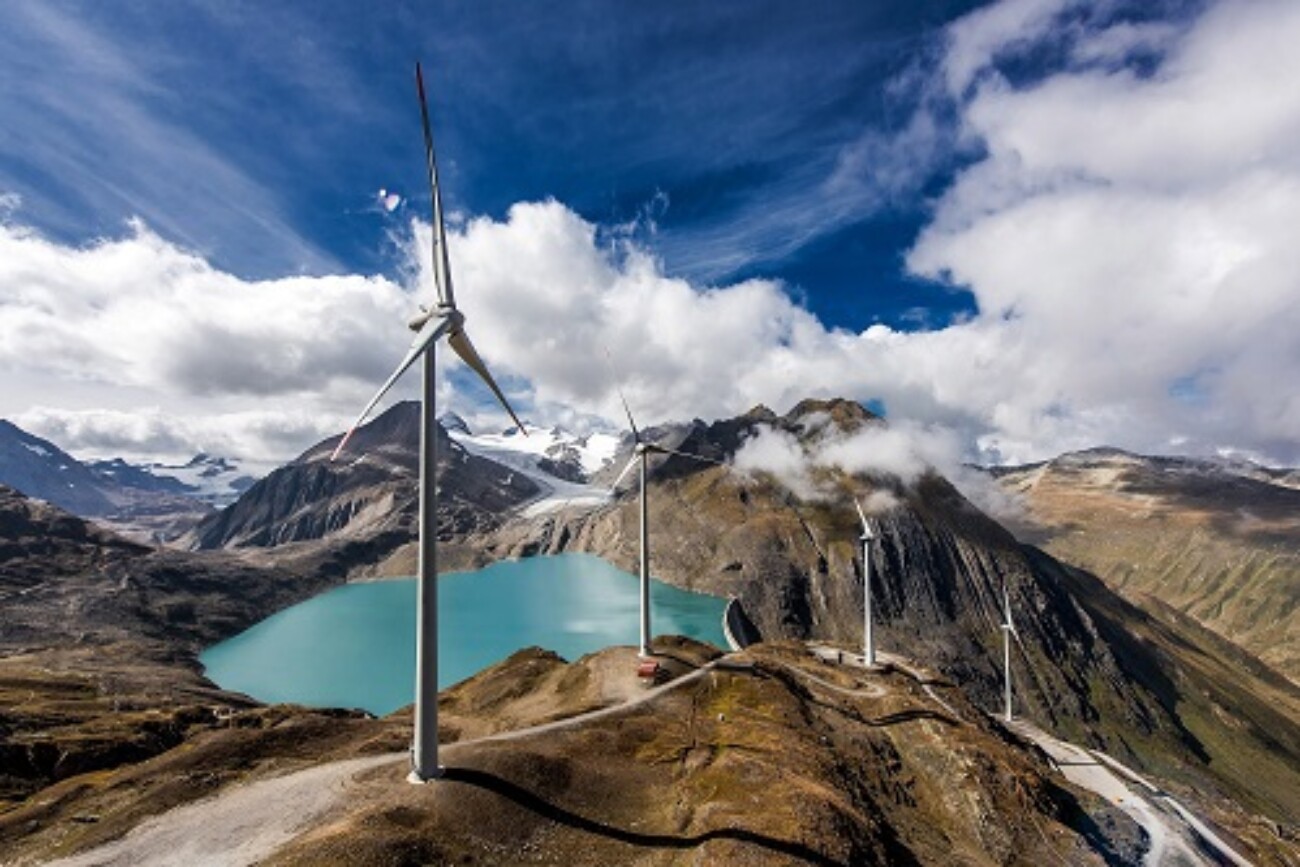Wind Energy in Switzerland
2022 wind energy numbers
By the end of 2022, Switzerland had 41 large wind turbines with a total rated power of 87 MW in operation. These turbines collectively produced 153 GWh of electricity throughout the year. Additionally, a new wind farm with a capacity of 14 MW is under construction and will be commissioned in 2023.
Since 2009, Switzerland has benefitted from a cost-covering feed-in tariff (FIT) for renewable energy [1]. In 2022, a new scheme with an investment subsidy of 60% also entered into force. These policies offer an attractive economic environment for wind energy. However, the authorisation process is causing a 25-year delay. Currently, around 2 TWh of projects are under development.
To learn more about wind energy in Switzerland, please review their chapter in the IEA Wind TCP 2022 Annual Report.
National Targets
The Energy+ Strategy projects an additional 39 TWh from renewable energy by 2050. Newly proposed legislation anticipates more ambitious goals of 35 TWh by 2035 and 45 TWh by 2050. Wind energy should contribute 4.3 TWh/year to this target (with intermediate goals of 0.3 TWh in 2025 and 1.2 TWh in 2035), the Swiss Wind Association 9 TWh for 2050. The current FIT scheme has concluded, and a new scheme based on investment subsidies, covering up to 60%, started supporting wind energy deployment in 2022. However, the new scheme is disadvantaged by its inability to address long-term market price risks and is therefore inappropriate for wind energy projects, which tend to operate over long timelines. Nevertheless, the scheme has potential for community-owned wind turbines, but this depends on the duration of the authorization process for smaller projects, which has not yet been defined.
Progress & Operational Details
Approximately 57% of Switzerland’s electricity production comes from renewable sources, with hydropower providing the biggest contribution of 92%. Currently, wind power provides 0.3% of Swiss electricity consumption. An additional 360 MW of capacity are already in advanced planning stages, while early-stage projects represent roughly 600 MW. These projects should be realized in the next 3-5 years.
National RDD Priorities and Budget
The Swiss R&D priorities are: Plants:
• Development of data-related methods for planning, layout, and operation of wind parks;
• Development and validation of control strategies for optimising overall operational performance (e.g., concerning forecasts and shut-down algorithms).
Turbines:
• Component optimisation, especially for the use of wind energy in complex terrain;
• Development and validation of components for cold climates and for accurate forecasting of ice formation;
• Noise abatement strategies.
